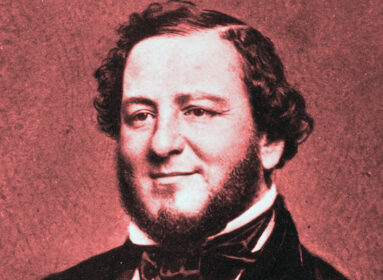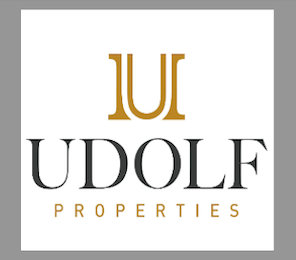
Conversation with Professor Donald G. Ellis
An expert in group conflict zeroes in on Israel and the Palestinians
By Cindy Mindell
WEST HARTFORD – Donald G. Ellis, PhD is a professor in the University of Hartford School of Communication. His research interests are in the area of ethnopolitical conflict, with particular emphasis on communication practices between ethnic groups in conflict. His work seeks to examine the relationship between communication, democracy, groups in political conflict, and dialogue.
Ellis earned a PhD from the University of Utah, where his doctoral dissertation, “Conflict Interaction in Groups,” won the National Communication Association Golden Anniversary Dissertation Award. Before joining the University of Hartford faculty, he taught at Purdue University and Michigan State University.
Ellis received the 1999 James E. and Frances W. Bent Award for scholarship and was a 2004-05 Fulbright scholar in Israel.
A Fellow in the International Communication Association, he has received summer fellowships at the Asch Center for the Study of Ethnopolitical Conflict at the
University of Pennsylvania, and at the Schusterman Center for Israel Studies at Brandeis University.
 A past editor of the journal Communication Theory, and the author of numerous journal articles, Ellis recently published Fierce Entanglements: Communication and Ethnopolitical Conflict (Peter Lang Publishing, Inc., 2014), which focuses on the Israeli-Palestinian conflict and comprises the third in a trilogy. It was preceded by his books Transforming Conflict: Communication and Ethnopolitical Conflict (2006) and Deliberative Communication and Ethnopolitical Conflict (2012). Ellis’s earlier books include Small Group Decision Making; From Language to Communication; and Crafting Society: Ethnicity, Class, and Communication Theory.
A past editor of the journal Communication Theory, and the author of numerous journal articles, Ellis recently published Fierce Entanglements: Communication and Ethnopolitical Conflict (Peter Lang Publishing, Inc., 2014), which focuses on the Israeli-Palestinian conflict and comprises the third in a trilogy. It was preceded by his books Transforming Conflict: Communication and Ethnopolitical Conflict (2006) and Deliberative Communication and Ethnopolitical Conflict (2012). Ellis’s earlier books include Small Group Decision Making; From Language to Communication; and Crafting Society: Ethnicity, Class, and Communication Theory.
Ellis is the author of the blog, “Peace and Conflict Politics: Israel, Middle East Politics, and Communication.”
Ellis is currently involved in research pertaining to dialogue groups between Israeli Jews and Palestinians. He will discuss his work and his latest book at the N. Richard Greenfield Jewish Ledger Lecture on Wednesday, Sept. 9 at 7 p.m. in the Wilde Auditorium of the University of Hartford. The lecture is co-sponsored by the Ledger and the University of Hartford’s Maurice Greenberg Center for Judaic Studies. It will be followed by a dessert reception.
Ellis spoke with the Ledger about his work to understand and find solutions to ethnopolitical conflicts, and weighed in on some of today’s most complex issues.
Q: How did you develop your academic interest in ethnopolitical conflict?
A: I’ve always been interested in groups, and particularly in group conflict, and I gravitated over time to the difficult conflicts. I wasn’t interested in corporate conflict that could be rational and worked out with financial compromises. I was more interested in the deep psychology of groups that hated each other.
I’ve been working in the area of group conflict all my academic career, particularly with emphasis on Israel-Palestine. I’ve been working with Israeli colleagues on contact groups – getting groups of people together to have contact for exploration of the conflict and discussion about identity, as a way of trying to change their attitudes a little bit. Attitude change is very slow and very difficult but there are various techniques that can do what I call “unfreezing attitudes.” Attitudes can be frozen; people have firm beliefs. I don’t have any illusions about changing them but I can loosen them up a little bit.
After the breakup of the Soviet Union, we had even more ethnic groups who reconnected with their ethnic roots. They may have been part of the Soviet identity or Soviet satellite for awhile, but now they’ve reconnected with their identity group.
The most extreme sort of religious identity that we’re seeing now is ISIS. In terms of the movement of the history of the world, this is a serious step backward. These guys are truly extreme and truly wrapped up in a very particular identity. They’re the kind of people who believe that they talk to God. A section of my lecture and of my book, Fierce Entanglements, explores this: how you talk to people who believe they talk to God, and what the quality of those discussions is like.
We’re in a state of a resurgence of strong identity of ethnic groups. Israeli settlers are equally as strong but they’re not as violent. It’s not the same thing: they don’t justify violence in the same way. Some do, but those are considered by anybody in Israel — and anybody else — to be criminal acts, not justifiable religious acts.
Q: Have you encountered anti-Israel activity at the University of Hartford?
A: The University of Hartford is not all that active from an anti-Israel perspective. There’s a large Jewish population; we have a Judaic Studies center. There’s some, of course – you get some of that at meetings and speeches – but it’s not like a lot of other institutions, where the opposition to Israel is highly organized. For example, at Connecticut College, there’s a more activist student body who is opposed to Israel and is more defensive about the Palestinians.
As a pro-Israel Jew, I have found that some people will dismiss me for my pro-Israel stance – just because I am Jewish. Being Jewish and pro-Israel really is unrelated to my academic work.
Q: You have taught in Israel, on both sides of the Green Line. Describe your work and the reactions you’ve received from colleagues and others.
A: I taught at Tel Aviv University about 10 years and about three years ago, I taught at Ariel University in the territories. It’s in the town of Ariel, on the other side of the Green Line. I’ve taught courses in political conflict and communication. I try to bring ideas about solving problems, about contentious politics and ways in which two sides can solve problems.
There are three levels in which you can enter a conflict, and I’ll talk a little about this in my lecture. You can enter a conflict to try to do something about it on the macro level, which is the political level, the level of leaders, elected officials, representatives, etc. The kind of communication that goes on there is mostly bargaining and negotiation and international diplomacy. The mid-level is civil society – schools, trade unions, and social institutions. There’s a lot of inter-group contact there. The most micro level is face-to-face interpersonal relations, teaching people how to interact and become friends with one another, learning to know and understand the other person. That’s what I taught at those Israeli universities.
I got flak from a variety of people for teaching at Ariel University. Some of my liberal Israeli friends didn’t think I should be going there and doing that. I took the exact opposite position: I said that that’s exactly where I should be. I wasn’t going there working for Ariel or for the settlers; it’s not like they were paying me or that I was designing a curriculum to further their goals and interests. I was teaching students about conflict management and conflict resolution and all students can use that. I wasn’t there telling them what to do per se, but I was trying to bring a variety of issues to the forefront, so that people might make some progress toward solving problems.
Q: Do you see signs of hope in the Israeli-Palestinian conflict?
A: It’s a long, very difficult, very complex conflict and I don’t see signs of hope. There are a lot of people arguing now to just let it be and not do anything, just manage the conflict. Every year or so, you’ll have some violence and some things that go bad, but that’s just the price you pay for not doing anything. Israelis are fed up, they’re tired, they don’t believe there’s anybody to talk to, they don’t believe the other side is serious. Solutions to the Israeli-Palestinian conflict on any front are not difficult at all. I could give you lots of solutions: two-state solutions, refugee solutions, reparations, settlements, management of water and electricity. There are lots of solutions; it’s getting people to the table, getting them to accept the solutions.
Q: What is your opinion of the Iran nuclear deal?
A: I think the Iran deal is okay and that we should be supportive of it. It’s not perfect; it’s not the ideal solution for anybody. Can Iran cheat? Maybe they can. The one thing the Iran deal does is it sets up a structure and organizes the relationship between the United States and Iran and China and a few other countries. It sets up a context, a way of having an interaction, of dealing with each other and that’s important. It maintains contact. The alternative to no deal is the worst possible thing you can have: Iran going off on its own under no scrutiny, with no involvement from anyone else, doing whatever it wants, with no inspections or engagement, no anything.
It doesn’t meet all factors, and Netanyahu is a tough guy who has an existential attitude about it. He sees an existential threat to his country, so he wants a harsher solution. But I think what was achieved is probably as good as it’s going to get right now and that’s the way it ought to be.
Q: How do you interpret the anti-Israel/anti-U.S. rhetoric Iran is spouting?
A: On the one hand, it’s rhetoric — leaders being inflammatory and they don’t really mean it. But you can’t necessarily walk around believing that they don’t really mean it – you have to plan for the fact that they do mean it.
I don’t think that you take it literally and that you all of a sudden say, “You threatened us, we’re going to bomb you,” but you take it seriously enough to say, “We’re going to keep our eye on you.” There’s a fair number of arguments that Iran has a young population that wants to be more western, wants more freedoms and products and something different than the gray beards that run the place, and that Iran actually would like a seat at the council of civilized nations and be respected. There’s an ancient, very proud, very successful Persian history, and they’re not necessarily crazy. Yes, they make some extreme statements on the basis of religious factors, but there’s a number of analyses that say Iran just wants to be treated with respect and accepted, which seem to hold some water also.
Q: What will you address in your Sept. 9 lecture at the University of Hartford?
A: I’ll talk about what I do in terms of communications approaches. I’ll talk about managing these difficult conflicts, ethno-political conflicts, where things like religion and ethnicity are implicated. The Israeli-Palestinian conflict is my specialty area, but it’s not a conflict about religion – they’re not arguing about religion or ethnic identity, but those things all play a part. Those kinds of conflicts are different because they’re identity-based conflicts. These are not conflicts over rational resources. If the Israelis and Palestinians were arguing over grazing land and had some way to bargain and negotiate that – I’ll take this half and you take that half, or I’ll graze for six months and you graze for the next six months – they could come to some sort of rational conclusion. But those kinds of rational conclusions don’t work when the land is sacred, when the land is holy, and that land you don’t give up or divide in half. That’s what makes that conflict particularly difficult, resistant to resolution, and intractable. They become
identity conflicts: this land is important to me because of who I am and my identification with a group of people I see as associated with it. Identity is a very deep psychology that is powerful. People kill and die for identity.
You don’t deal with those conflicts in quite the same way: you have to deal with cultures and their specialty approaches.
I will also be talking about the book I just published, which deals with communication issues – some of which are media and journalism issues and some of which are conflict, theory, etc.
When I talk to audiences or students, I always use this example: if you drew a map of the world and you drew countries to size based on the amount of news devoted to those countries, Israel would be the size of the old Soviet Union – that’s how much media attention they get. There are three reasons for that: Israel is a democracy; you can get off the plane and walk around and follow a story.
Try that in Saudi Arabia – you can’t do that. Second, English is prevalent. Most people speak English, leaders in particular, because nobody else in the world speaks Hebrew and you can’t function outside of Israel without English. Third, there is the caché of the Holy Land. You have the three Abrahamic religions who have claims on that part of the world.
So Israel gets a lot of attention, along with the Israel-Palestine conflict.
So that’s why news is very important and it’s very distorted and exaggerated: Israel is a small place and the conflict is a local argument over national rights.
For more information on Prof. Ellis’s work visit peaceandconflictpolitics.com.
The N. Richard Greenfield Jewish Ledger Lecture Series will be held Wednesday, Sept. 9, 7 p.m. in the Wilde Auditorium of the University of Hartford. The lecture is co-sponsored by the Greenberg Center for Judaic Studies at the University of Hartford and the Connecticut Jewish Ledger. Admission if free and open to the public. For more information: (860) 768-4964.







 Southern New England Jewish Ledger
Southern New England Jewish Ledger















